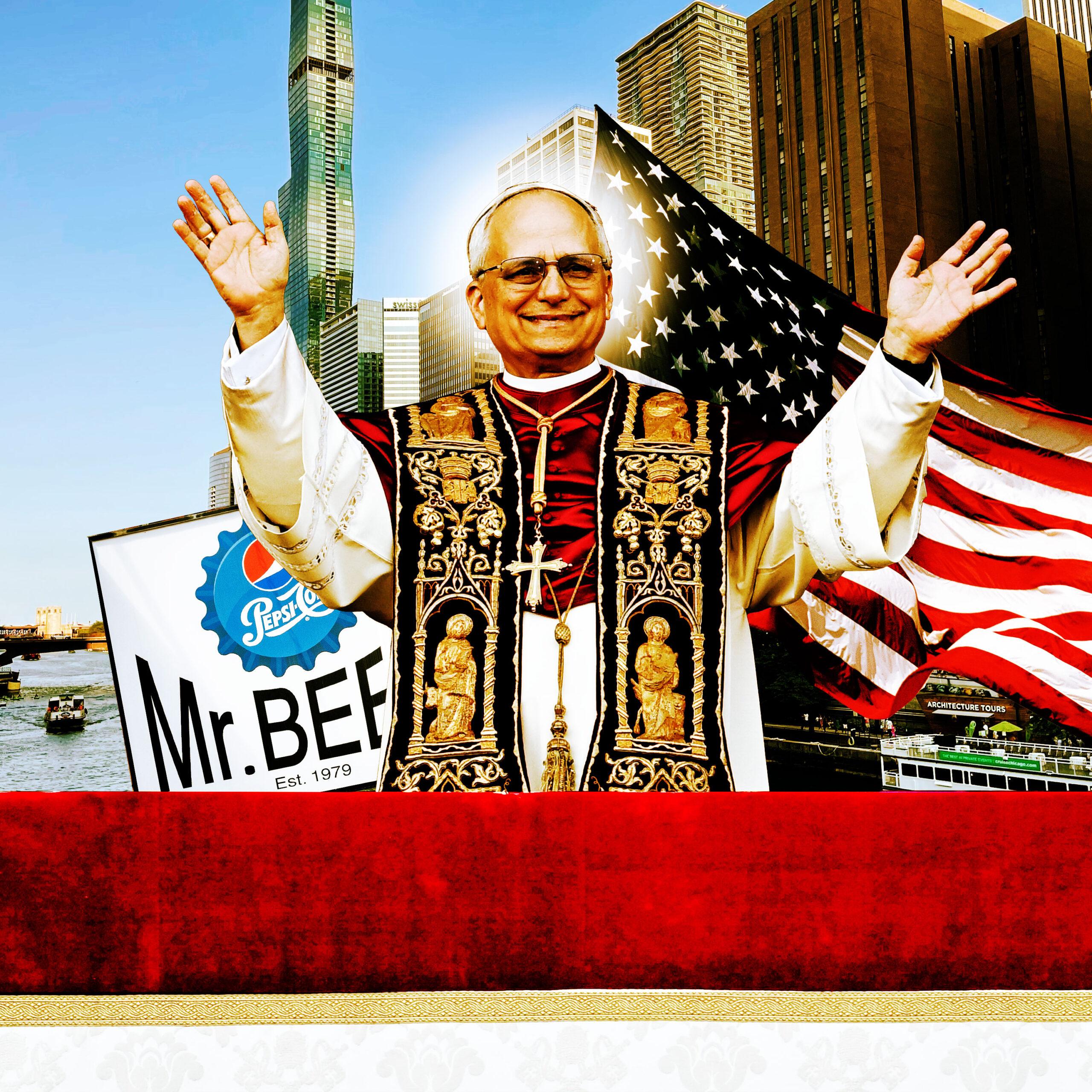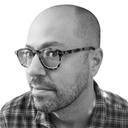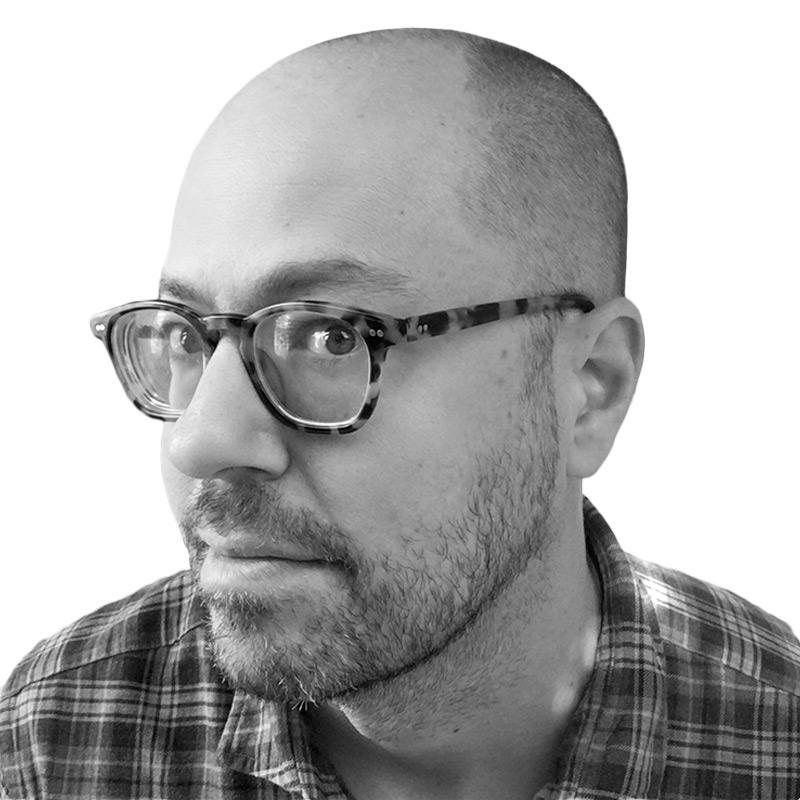Our First American Pope
Perhaps no incident in recent world history has driven the internet to produce as much instant fan fiction
“The pope is American!” I cried, a few minutes after the telltale plume of white smoke billowed out from the chimney of the Sistine Chapel. The College of Cardinals had chosen its new pontiff.
“The pope is from Chicago! He’s named Bob!” I wailed, refreshing the page.
“The pope went to Villanova!” I absolutely shrieked, almost blacking out as I tried to guess whether Pope Bob had a Kyle Lowry take.
By the time Cardinal Robert Prevost, resplendent in box-fresh papal raiment, made his first appearance on the balcony of St. Peter’s Basilica as Pope Leo XIV, my mind was reeling. All our minds were reeling. Perhaps no incident in recent world history has driven the internet to produce as much instant fan fiction as the arrival of the first American pope. We’d barely finished typing “CHICAGO POPE!” before we were racing to fill in his backstory. Was the pope a Cubs fan? (No, White Sox, according to his brother, and he was at the 2005 World Series.) Did the pope have opinions about deep-dish pizza? (Almost certainly, but they have yet to be disclosed outside the confessional.) Has the pope tried Malört? (I’m assuming no, since he retains his faith in God.)
Here was the pope, gazing down on the crowd of the faithful who’d thronged St. Peter’s Square to look at him, and here was my web browser, rapidly adding tab after tab as I spent 20 minutes researching two urgent questions: How many popes have eaten a hot dog, and which pope ate one first?
One of the classic mistakes people make when they talk about contemporary culture is to confuse the internet with the outside world. Another is to confuse their own particular corner of the internet with the entire internet. So let me stipulate that I’m speaking only for my own feed here, but man, Pope Day was fun. We all needed something to take our minds off the ongoing collapse of the large number of things that are currently collapsing. What better distraction could there be than the unexpected discovery that the fisherman’s ring would now be worn by a dude who’s almost definitely seen The Blues Brothers?
OK, yes, sure, the media reported that the pope had spent much of his working life outside the United States. He’d spent years in Peru; he’d moved to the Vatican to work under Pope Francis as the prefect of the church department responsible for selecting bishops. Still! Before long, we learned the pope had Louisiana Creole ancestry. This pope is as American as it gets.
“You know the pope has ordered Domino’s Pizza,” I muttered through clenched teeth, almost shaking my fist with passion. I was alone in the room with one of my dogs. “You just know he has!”
There are more than a billion Catholics in the world. The pope, who stands at their head, is one of the most powerful people on earth. The election of a new pontiff is therefore an event whose significance transcends the memes of one Thursday afternoon. Francis, Leo XIV’s predecessor, had been revered during his 12-year papacy for his devotion to the poor. He’d spoken out against the rise of right-wing populism, opposed capital punishment, and advocated for refugees and migrants. In the months and weeks before his death, he’d publicly corrected the self-serving theology of JD Vance, an adult convert to Catholicism, who’d tried to use church doctrine as a justification for mass deportations.
Would Bob—sorry, Leo—pursue the same course? It turned out that the pope, when still a mere cardinal, had been active on Twitter, where he, too, had posted criticisms of the Trump administration’s hostile treatment of migrants. Upon Leo’s election, online MAGA types immediately started deriding him as a “shitlib” and an heir to the late Pope Francis, whom they called “a woke piece of shit.” You’d think that anyone who caught themselves using terms like “shitlib” to describe literally the pope would immediately question all the choices that had led them to this tragic moment in their lives. If any of them did so, however, they did not publicize their moment of contrition.
Is the new pope, in fact, woke? Within the church, he’s seen as a centrist. He’s been accused, like many cardinals, of mishandling abuse by priests. In the past, the pope had frankly not sounded all that woke when he talked about LGBTQ issues. Some progressive church observers, however, read the signs and argued that the pope might be at least relatively woke. His early comments have mostly been about ending war, which I guess counts as woke if you love war. There is reason to think that, by electing an American protégé of Francis and a critic of MAGA politics, the cardinals are moving to make the church a bulwark against Trump-style authoritarianism.
All weekend, I kept thinking about this strange, two-sided papal discourse. On the one hand, the conclave had seemed like pure frivolity; on the other, it seemed like an event of vital historic import. It was a platform for the dumbest jokes in the history of the internet; it was a rebalancing of power in the world. “Does the pope watch The Bear?” I said to myself. “Will the pope tip the scale against evil as I understand it?”
The more I thought about this tension, the weirder it seemed. It was the same after Francis’s death on April 21. In the immediate aftermath, there were some Vance jokes, but the overall tenor of the conversation—at least the conversation I saw—was serious. Many people had found Francis inspiring. Many people had considered him a moral hero and talked about his death as a profound loss for the world. Barely a day later, my feed was wall-to-wall Conclave jokes.
Well, no one ever got very far looking for consistency from the internet. And the contradictions of the conversation around the pope are probably an inevitable result of the church’s place in modern society. Nothing could have more contemporary relevance than the institution that guides the spiritual lives of a sixth of the world’s populace. At the same time, nothing could feel more quaintly antiquated than an institution whose leaders stride through marble halls wearing shiny gowns and Renaissance headgear. The Vatican is what you’d get if the Met Gala were given direct operational control of Buddhism.
If you’re a secular heathen like me, you can’t look at pictures of the Swiss Guard, the pope’s personal bodyguard troop, and not chuckle at their Three Musketeers cosplay uniforms. But then, you also can’t think of the millions of people for whom the image of the pope is intimately bound up with the meaning of existence itself without feeling a sort of bashful awe.
Is it possible that, in 2025, this duality itself could be a key to the new pope’s moral authority? These days, after all, the forces of right-wing populism also live in that strange space between meme generation and leader worship. If a feature of modern authoritarian discourse is that it always wants to be seen as both a joke and not a joke—we’re storming the Capitol, but we’re wearing a slapstick viking hat; we’re advocating for genocide, but just to see how mad you get—then Leo XIV might be uniquely positioned to capture this tone for the opposition. After all, the pope is both a bigger joke and a bigger non-joke than even Donald Trump could ever hope to be.
Of course, the Catholic hierarchy would never exploit this tension on purpose. The College of Cardinals is not composed of 24-year-old DOGE nerds called Big Balls; to the Curia, this is wholly serious. But if, as often seems to be the case, our internet-poisoned brains are conditioned to want absurdity and solemnity to coexist even in our deepest convictions, then Bob from Chicago, the Holy Father, may now be the leader of the most potent belief system of all.

